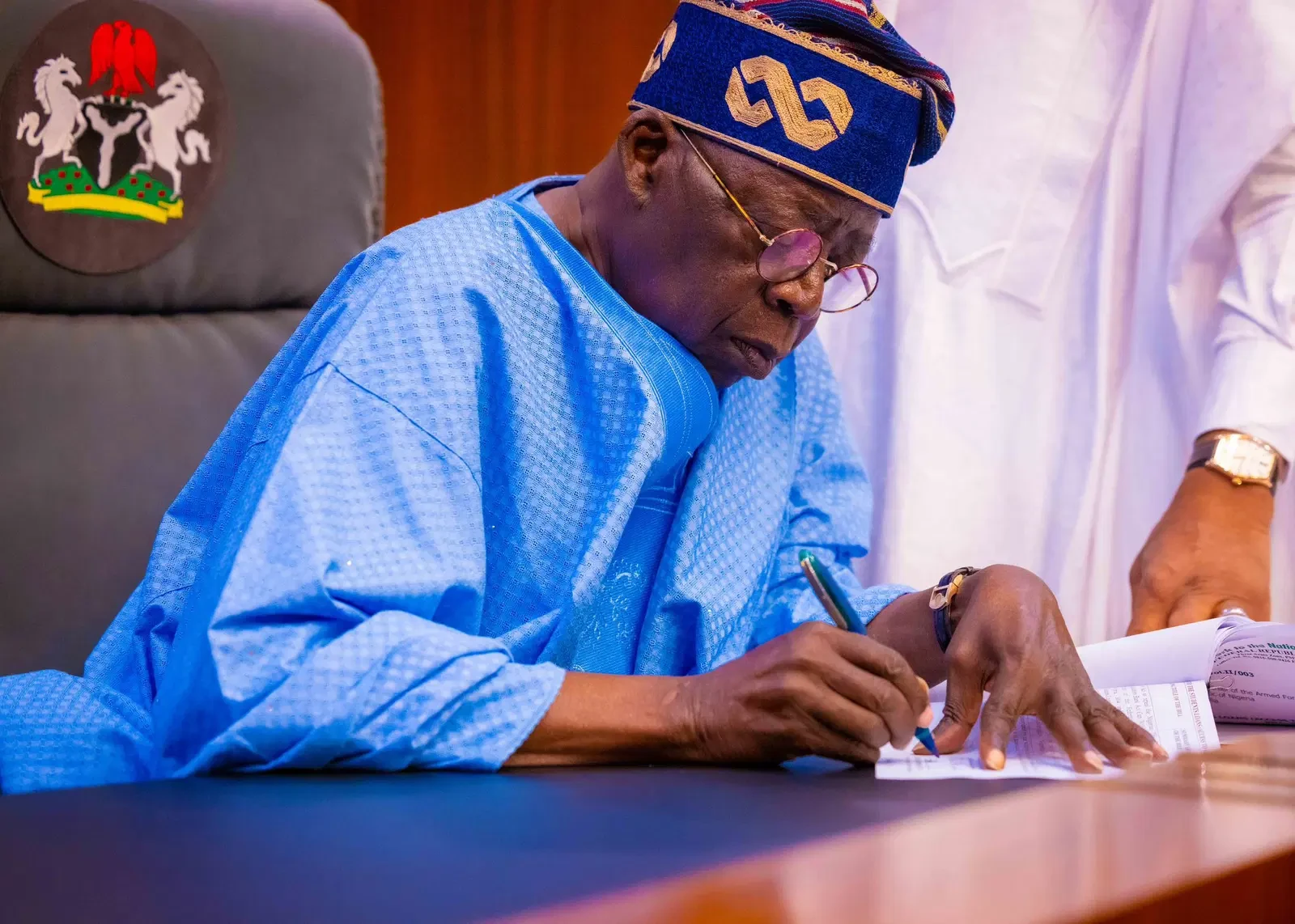Why Tinubu is a CIA is trending on X: Claims that Nigeria’s President Bola Tinubu is a CIA asset have sparked controversy, with court filings allegedly hinting at intelligence ties.

The recent federal court filing in the United States has ignited a heated debate across Nigeria and beyond. According to investigative journalist David Hundeyin, who shared a document excerpt, the CIA, FBI, and DEA have collectively filed a motion to prevent the full disclosure of records tied to President Bola Ahmed Tinubu’s alleged drug trafficking investigation.
This development raises significant questions about the relationship between the U.S. intelligence community and Nigeria’s sitting president, sparking an intense online conversation around the hashtag: #Tinubu Is a CIA.
Key Points from the Court Documents
The court document excerpt shared includes statements that seem to confirm the CIA's relationship with individuals who provide them with intelligence. In particular, it highlights concerns about protecting the identity of such individuals, stating that disclosure could “cause damage to U.S. national security.”
Furthermore, it suggests that revealing information related to “human intelligence sources related to Tinubu” could endanger U.S. security and potentially Tinubu’s network and family.
Another statement allegedly from the DEA’s filing says, “We oppose full, unredacted disclosure of the DEA's Bola Tinubu heroin trafficking investigation records because we believe that while Nigerians have a right to be informed about what their government is up to, they do not have a right to know what their president is up to.”
This line has particularly struck a nerve among Nigerians, as it raises the unsettling notion that their president's actions may be hidden from public view for reasons beyond national security.
Public Reactions: Anger, Distrust, and Demands for Transparency
This revelation has sparked intense reactions, with some prominent voices calling for accountability. Mikael Bernard, a Nigerian commentator, remarked,
“The President of Africa’s most populous country is a foreign spy who has been reportedly feeding intel to the CIA and possibly other foreign agencies for decades.”
This sentiment echoes the frustrations of many Nigerians who are demanding transparency and questioning the legitimacy of Tinubu's presidency.
There are also mounting questions about Tinubu's background, with critics pointing to his murky personal history, lack of documented family ties, and connections to foreign embassies.
Allegations that Tinubu may be a "foreign spy" have fueled suspicions about his close relationships with foreign diplomats, with some alleging that his Chief of Staff could be more of a “handler” than an advisor. These speculations prompt Nigerians to ask fundamental questions about the man in Aso Rock: “Who is Bola Tinubu?” and “What is his true background?”
Is the U.S. Influencing African Leadership?
The issue brings to light the broader narrative of foreign influence in African governance. If Tinubu truly has ties with U.S. intelligence agencies, it raises concerns about the extent to which foreign interests shape African leadership. Many Nigerians worry that, if true, such connections could lead to decisions and policies that prioritize foreign agendas over Nigerian welfare.
This development has deep implications for Nigeria’s sovereignty and the accountability of its leaders. While it remains unclear how much truth there is behind these allegations, the implications are staggering.
Could Tinubu’s rumored ties to the CIA have an impact on Nigeria’s domestic and international policies?
If foreign intelligence agencies have indeed cultivated ties with African leaders, this pattern could hint at a long-standing strategy to influence the politics and stability of African nations.
Why Nigerians Deserve Answers
The recent court proceedings indicate that there may indeed be information that intelligence agencies prefer to keep out of the public eye. Whether these records remain redacted or are eventually revealed, the Nigerian people are determined to find out the truth.
If substantiated, these allegations could be indicative of a much larger trend in which powerful countries covertly influence African politics. Such revelations should prompt a serious conversation across Africa about the need for leaders who prioritize their citizens' welfare above external influences.
For now, Nigerians can only wait and watch as these court proceedings unfold, but the demand for transparency has never been louder.

